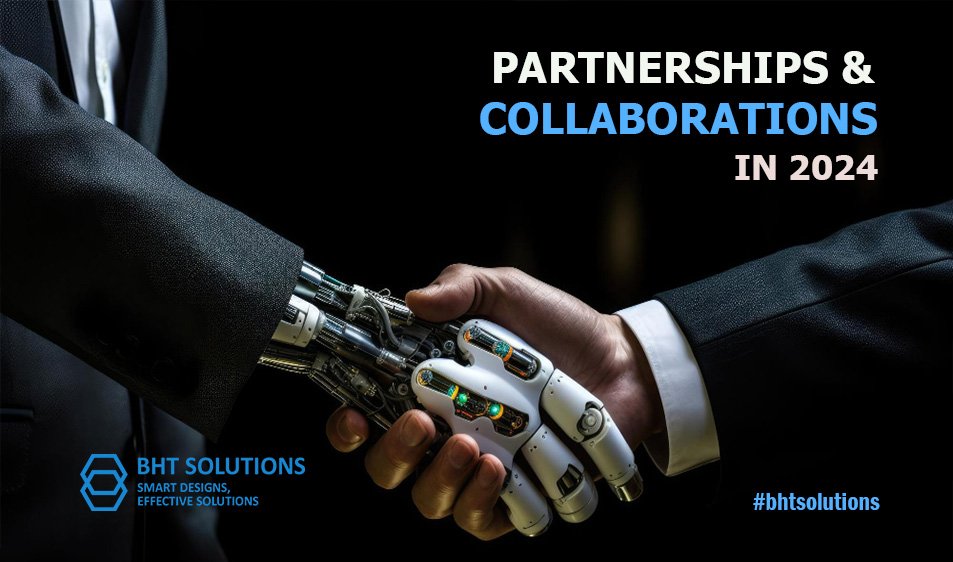In recent years, artificial intelligence (AI) has emerged as a powerful tool for addressing some of the world’s most pressing challenges and driving positive change. From healthcare and education to environmental conservation and humanitarian aid, AI technologies have the potential to revolutionize how we tackle complex problems and improve the lives of people around the globe. In this article, we’ll explore how organizations and initiatives are harnessing AI for social good in 2024, driving meaningful impact and creating a brighter future for all.
The Promise of AI for Social Good
AI technologies offer a myriad of opportunities for social good, including:
- Healthcare: AI-powered diagnostic tools can improve early detection of diseases, optimize treatment plans, and enhance patient outcomes.
- Education: AI-based tutoring systems can personalize learning experiences, provide targeted support to students, and bridge educational gaps.
- Environmental Conservation: AI-driven data analysis can help monitor and protect endangered species, track deforestation, and combat climate change.
- Humanitarian Aid: AI-enabled disaster response systems can predict and mitigate the impact of natural disasters, coordinate relief efforts, and aid in post-disaster recovery.
Real-World Applications of AI for Social Good
1. Healthcare
In the field of healthcare, AI is being used to revolutionize patient care and medical research. For example:
- AI-powered diagnostic tools are improving the accuracy and efficiency of medical imaging, enabling early detection of diseases such as cancer and cardiovascular conditions.
- Natural language processing (NLP) algorithms are being used to analyze electronic health records (EHRs) and extract valuable insights for clinical decision-making and population health management.
- AI-driven drug discovery platforms are accelerating the development of new treatments and therapies for a wide range of medical conditions, from rare diseases to infectious diseases like COVID-19.
2. Education
In education, AI technologies are transforming teaching and learning experiences, making education more accessible and personalized for students worldwide. For instance:
- AI-based tutoring systems leverage machine learning algorithms to adapt to each student’s learning pace, preferences, and skill level, providing tailored support and feedback.
- Automated grading systems streamline the assessment process for educators, freeing up time for more personalized instruction and feedback.
- AI-powered educational platforms offer interactive learning materials, adaptive quizzes, and virtual simulations to engage students and enhance comprehension.
3. Environmental Conservation
In the realm of environmental conservation, AI is playing a crucial role in monitoring and protecting the planet’s ecosystems. Some examples include:
- Satellite imagery and machine learning algorithms are used to detect deforestation, illegal logging, and habitat destruction in real-time, enabling timely intervention and conservation efforts.
- AI-powered drones equipped with sensors and cameras can survey wildlife populations, track migratory patterns, and identify areas of conservation priority, helping to preserve biodiversity and habitats.
- Predictive analytics models leverage historical data and environmental variables to forecast climate change impacts, inform mitigation strategies, and support policy decision-making.
4. Humanitarian Aid
In humanitarian aid and disaster response, AI technologies are improving the effectiveness and efficiency of relief efforts. For example:
- AI-driven predictive models analyze weather patterns, geospatial data, and historical disaster records to forecast natural disasters such as hurricanes, floods, and wildfires, enabling proactive preparation and response planning.
- Natural language processing algorithms are used to analyze social media feeds, news articles, and emergency calls to identify areas in need of assistance, coordinate rescue operations, and disseminate critical information to affected populations.
- Robotics and drones equipped with AI capabilities can deliver supplies, medical aid, and emergency assistance to remote or inaccessible areas during humanitarian crises, helping to save lives and alleviate suffering.
Ethical Considerations and Challenges
While AI has the potential to drive positive impact and social good, it also raises important ethical considerations and challenges that must be addressed:
- Bias and Fairness: AI algorithms can perpetuate biases and inequalities if not designed and implemented carefully, leading to unfair outcomes and discrimination.
- Privacy and Security: AI systems may collect and analyze vast amounts of personal data, raising concerns about privacy breaches and data security.
- Transparency and Accountability: The opacity of AI algorithms and decision-making processes can make it difficult to understand and hold AI systems accountable for their actions and decisions.
Conclusion: Shaping a Better Future with AI for Social Good
As we navigate the complex challenges of the 21st century, AI has the potential to be a powerful force for positive change and social good. By harnessing the power of AI technologies responsibly, ethically, and inclusively, we can address some of the world’s most pressing problems and create a brighter, more equitable future for all.

Are you passionate about using AI for social good? Get involved in initiatives and organizations that are driving positive impact through AI technologies. Whether you’re a researcher, developer, policymaker, or advocate, there are countless opportunities to contribute your skills, expertise, and passion to the movement for AI for social good. Together, we can harness the transformative potential of AI to build a more just, sustainable, and compassionate world for future generations.
